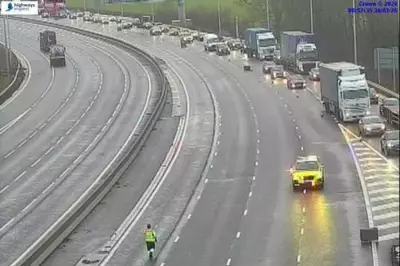
Britain's historic churches are facing an unprecedented crisis that could see hundreds of these cherished buildings permanently closed within the next decade. Soaring maintenance costs and dwindling congregations have created a perfect storm threatening the very existence of the nation's religious heritage.
The Staggering Scale of the Problem
According to alarming new data, the Church of England alone requires approximately £1 billion to address urgent repairs across its estate of 16,000 churches. Many of these buildings date back centuries and represent some of Britain's most important architectural and historical treasures.
The situation has become so dire that church leaders are now openly discussing the painful reality that many buildings may need to be decommissioned and repurposed, or in the worst cases, face demolition.
Why Repair Costs Have Skyrocketed
Several factors have contributed to this mounting crisis:
- Aging infrastructure: Many churches are medieval structures requiring specialist materials and craftspeople
- Declining congregations: Fewer regular worshippers means reduced collection plate income
- Energy inefficiency: Historic buildings are expensive to heat and maintain
- Specialist requirements: Traditional materials like lead for roofs have become increasingly expensive
- Maintenance backlog: Years of deferred repairs have created overwhelming catch-up costs
The Human Impact of Church Closures
Beyond the architectural loss, church closures represent a devastating blow to local communities. These buildings often serve as vital hubs for food banks, parent-toddler groups, community events, and support services for vulnerable residents.
"When a church closes, it's not just a building that's lost," explains one heritage campaigner. "It's the heart of a community that stops beating. The social consequences can be profound, particularly in rural areas where the church may be the last remaining community space."
Possible Solutions and Community Responses
Across the country, communities are fighting back with innovative approaches to save their local churches:
- Multi-purpose use: Churches are being adapted to host concerts, markets, and community events
- Heritage funding applications: Successful bids to organisations like the National Lottery Heritage Fund
- Community ownership: Local groups taking over management and fundraising
- Digital fundraising: Crowdfunding campaigns targeting diaspora communities and heritage enthusiasts
The Race Against Time
Despite these efforts, many fear it may be too late for hundreds of churches. The combination of structural deterioration and financial pressures creates a countdown that many congregations simply cannot beat.
The next ten years will be critical in determining whether Britain can preserve its remarkable collection of historic churches or whether future generations will only know these architectural masterpieces through photographs and memories.
As one vicar poignantly noted: "We're not just caretakers of buildings; we're guardians of centuries of prayer, community, and history. The thought of that chain being broken is almost too painful to contemplate."





